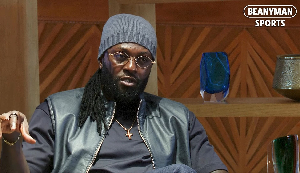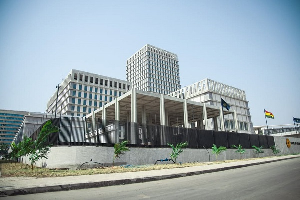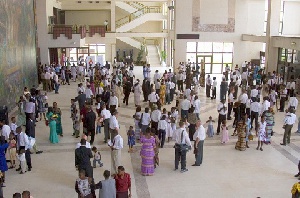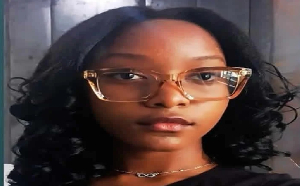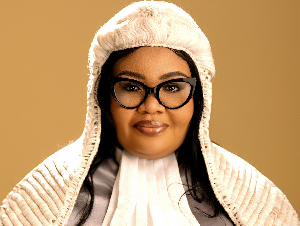Nana Oye Lithur, Ghana’s Minister of Gender, Children and Social Protection has called for the inclusion of social protection for the elderly in the post 2015 agenda of the Millennium Development Goals.(MDGs).
Contributing to a panel discussion on “Widowhood across generations: A root cause of poverty” at the United Nations Headquarters in New York on Wednesday(March 12, 2014) she mentioned that this was one effective and quick way of helping them to overcome their vulnerability and poverty, apart from being well empowered.
The discussion formed part of side events at the on-going 58th session of the Commission on the Status of Women at the UN Headquarters, currently being attended by high ranking government officials, women groups and human rights activists from all over the world.
Giving a picture of some interventions that the Ghana government had embarked on towards protecting women, the elderly and widows, the Minister spoke about cash grants given to mostly rural women(57%) under Livelihood Assistance Programme (LEAP), and engaging them for seasonal works to support themselves.
Following the passage of the Intestate Succession law in Ghana in 1985 and the subsequent criminalization of customs and culture which are dehumanizing and harmful, Nana Oye Lithur noted that widows have had some protection, from being denied a share of spousal property or inheritance unlike what used to be the case.
Currently, she said the law had been reviewed after being in operation for 20 years and is now receiving the necessary attention before Parliament, hoping that it will soon be passed.
Commenting on the difficulties in changing some of the negative widowhood rites and traditions against women all over the world, Nana Oye Lithur, a human rights lawyer acknowledged that some of the “wrong” systems had been practiced for several centuries so correcting such archaic traditions will take time.
Ms. Reshma Thapa of the Women for Human Rights, a single women’s group in Nepal said because single women are very vulnerable, they decided to form the Single women’s group in Nepal and to make them socially and economically empowered to become agents of change “and it had paid off very well”.
She urged all governments and United Nations agencies to focus more attention to empower women and widows economically and socially to end poverty because a lot depended on them(women) for the survival of their children and families.
On her part, Dr. Eleanor Ann Nwadinobi, president of Widows Development Organization in the Enugu State of Nigeria, identified widowed and discrimination against women as the root cause of their poverty.
She condemned child marriage, female genital mutilation, and widowhood as various forms of violations of women’s rights and immediately called for equal opportunities for all women to have free access to land, health, and work for equal work.
Mama Zimbi,,a women’s,right advocate noted that women all over the world face the same challenges, since they are either denied property inheritance, face discrimination and suffer sexual violence, so they should be assisted with funds to do businesses to support themselves.
“Women who succumb to widowhood rites are those with no means of livelihood”, she said and praised the Domestic Violence Victims Support Unit under the Ghana Police Service for being very supportive of efforts to protect especially women and children from violence in Ghana.
A panelist, Zarin Hainswork, a women’s rights activist from United Kingdom said widows are unable to fulfill the roles expected of them in the society.
Ms Hainswork criticized marrying of young girls, sometimes as young as one year. She also suggested the setting up of a UN Special representative for Widows apart from amending the Rome Statute to criminalize violence against women. The moderator of the discussion, Baroness Fiona Hodgson, a Member of the House of Lords, United Kingdom supported calls for the empowerment of women and the abolishing of widowed rites that affect women. She also agreed with the panelists for all women to have full control over their bodies and sexual preferences.
General News of Thursday, 13 March 2014
Source: r.harry reynolds, ghana mission ,new york


